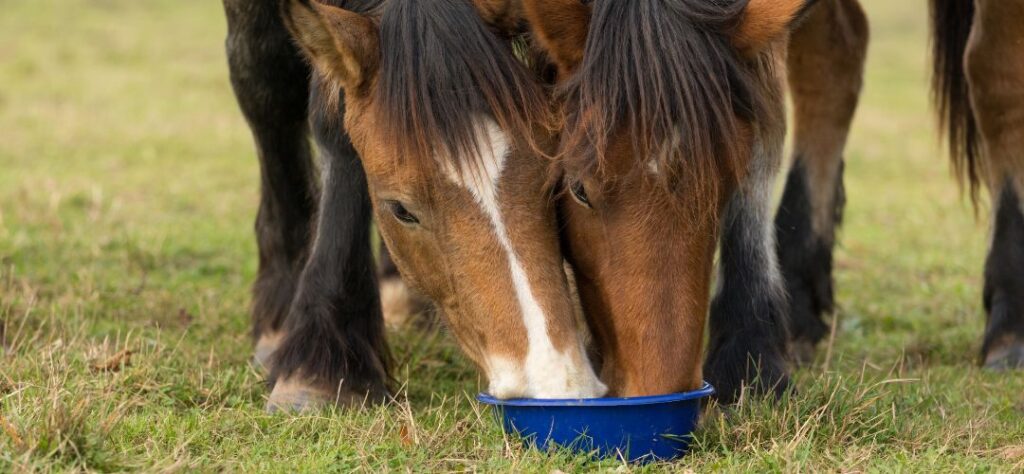Choke is a condition that can affect horses of all ages and breeds. It occurs when food becomes lodged in the esophagus, blocking the passage of both food and saliva. If left untreated, it can lead to serious complications. As a responsible horse owner, it’s important to know how to recognize the signs of choke and take immediate action. In this article, we will explore each of these topics in detail to ensure you have all the information you need to keep your horse safe and healthy.
Recognizing Signs of Choke in Horses
Choke can be a distressing experience for both the horse and the owner. The first step in dealing with this condition is recognizing the signs. One of the most obvious signs of choke in horses is difficulty swallowing. You may notice your horse repeatedly attempting to swallow but without success. Other signs include:
Large amounts of frothy discharge coming out through both nostrils
Excessive salivation
Coughing
Repeated gaping of the mouth
Stretching the neck out in an attempt to relieve discomfort
Colic-like signs of sweating and discomfort
If you suspect that your horse is choking, it’s crucial to act quickly. The longer the food stays lodged in the esophagus, the greater the risk of complications such as esophageal damage or aspiration pneumonia. Contact your veterinarian immediately for further guidance.
Furthermore, it’s important to note that choke in horses can occur due to a wide variety of reasons, including poor dental health, eating too quickly, inadequate chewing of food, or consuming large, dry food items like carrots or apples. Understanding the underlying cause can help prevent future episodes of choke in your horse.
Observing your horse’s behavior closely and being prepared to provide necessary care can make a significant difference in the outcome of a choke episode. Remember, early detection and prompt action are key in ensuring the well-being of your horse.
Immediate Steps to Take When Your Horse is Choking
While waiting for the veterinarian to arrive, there are a few things you can do to help your choking horse. The first step is to remove all sources of food and water, as further intake can worsen the blockage. Next, remain calm and try to keep your horse calm as well. Stress and panic can exacerbate the situation. You may also gently massage your horse’s throat to stimulate the swallowing reflex and help dislodge the obstruction.
In some cases, the obstruction may dislodge on its own, and your horse will start swallowing normally again. However, it’s crucial to remember that choke can be a serious medical emergency, and professional intervention is necessary to ensure the well-being of your horse.
If the choking persists, it’s important to monitor your horse closely for signs of distress such as increased respiratory rate, nasal discharge, or coughing. These symptoms may indicate that the obstruction is not clearing, and immediate veterinary assistance is required. Additionally, avoid attempting to force water or any other liquids into your horse’s mouth, as this can lead to aspiration pneumonia.
During this critical time, it’s advisable to keep your horse in a quiet and well-ventilated area to reduce stress and facilitate easier breathing. Remember, early recognition and prompt action are key in managing a choking episode in horses.
Preventing Choke in Horses: Tips and Strategies
Prevention is always better than cure, and this holds true for choke in horses as well. By implementing a few strategies, you can significantly reduce the risk of this condition occurring. One key preventive measure is ensuring that your horse’s meals are properly balanced. Large chunks of food or poorly chewed food can increase the likelihood of choke. Therefore, it’s important to provide your horse with well-chopped, easily-digestible feed.
Additionally, make sure your horse has access to fresh, clean water at all times. Dehydration can lead to dry and sticky feed, making it more likely to become lodged in the esophagus.
Furthermore, it’s crucial to pay attention to your horse’s dental health. Dental issues can hinder proper chewing, leading to larger food particles that may pose a choking hazard. Regular dental check-ups and floating (filing down sharp points on teeth) can help ensure that your horse’s teeth are in good condition for effective chewing.
Another aspect to consider is the type of feed you are offering your horse. Certain feeds, such as pelleted feeds, can be easier for horses to consume compared to whole grains or coarse hay. Choosing feeds that are specifically formulated for easy digestion can lower the risk of choke episodes.
Feeding Management for Horses Prone to Choke
Some horses are more prone to choke than others, and if your horse falls into this category, there are specific feeding management techniques you can employ to minimize the risk. One approach is to soak your horse’s feed to soften it, making swallowing easier.
In addition to soaking your horse’s feed, another strategy to consider is feeding smaller, more frequent meals throughout the day. This can help prevent your horse from bolting their food, reducing the chances of choke.
Understanding choke in horses and its implications is crucial for every horse owner. Recognizing the signs early and taking prompt action can prevent serious complications and ensure the well-being of your horse. By being informed about the causes, symptoms, and treatment options, you are better equipped to handle this condition effectively. Remember, proactive care and swift intervention are key to keeping your horse safe and healthy. Stay vigilant, educate yourself, and always consult with your veterinarian to provide the best possible care for your equine companion.


